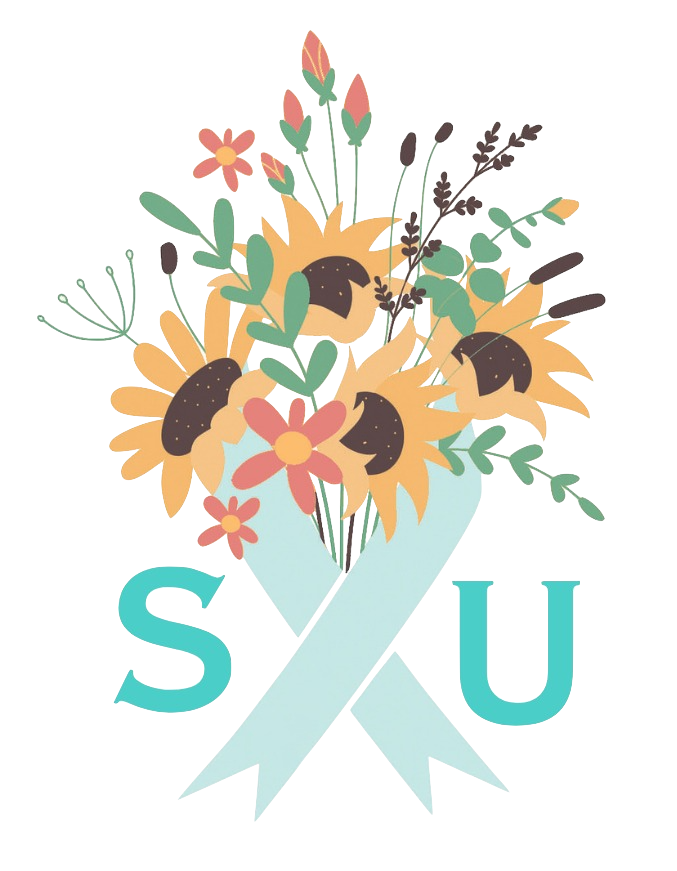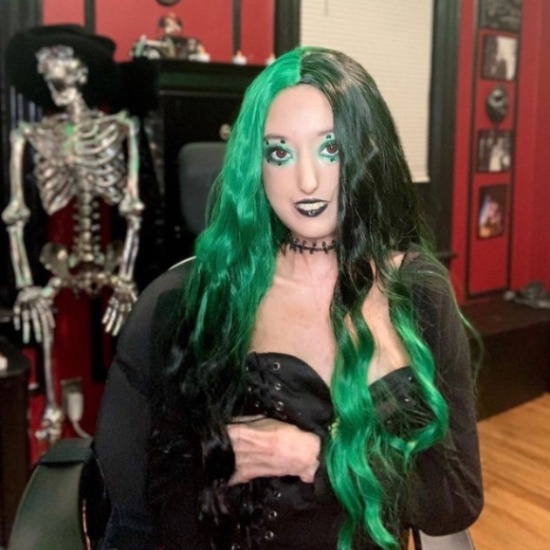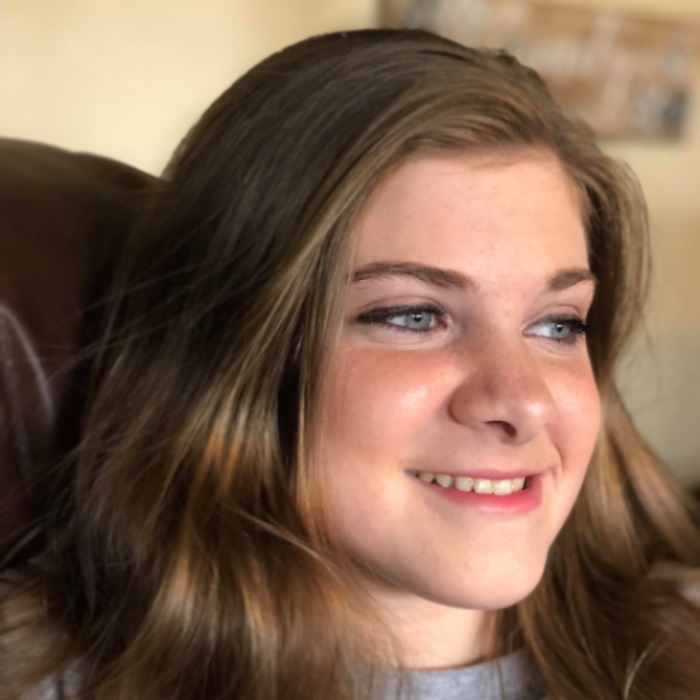Spokane, Washington (United States)
CAT DAVIS
Scleroderma Stories Issue 2
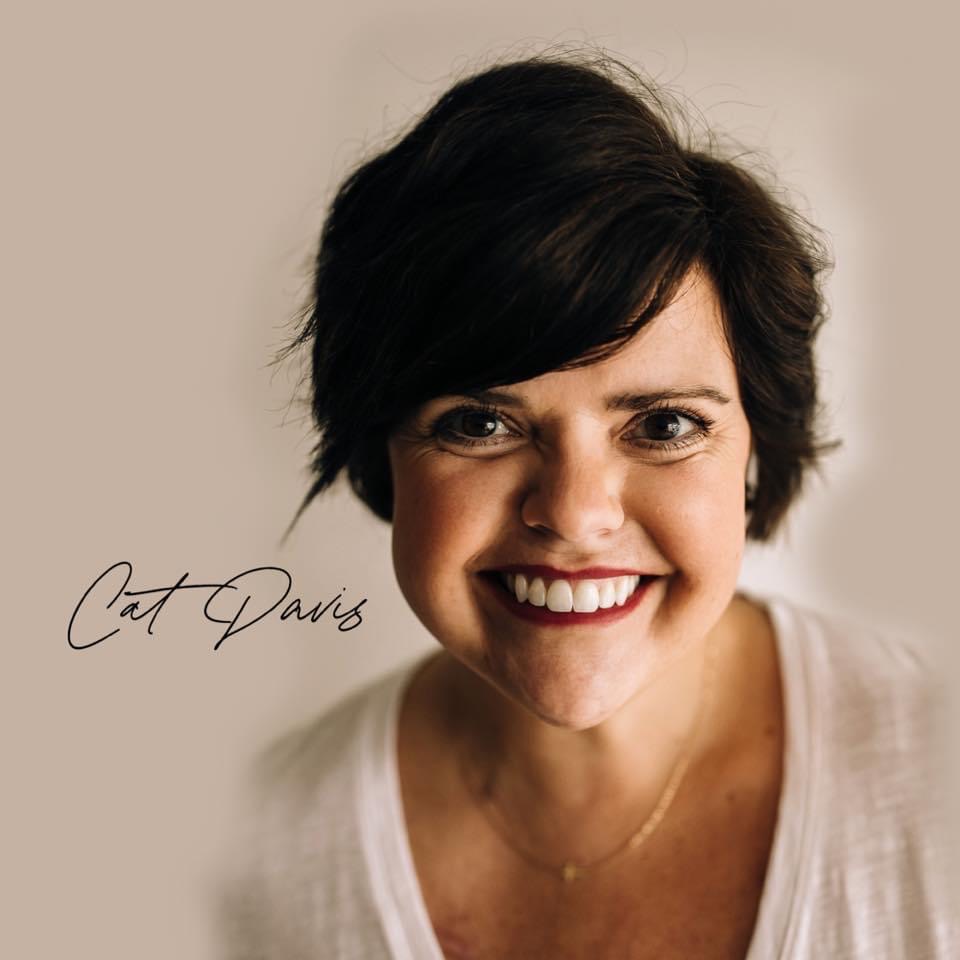
Please introduce yourself
My name is Cat Davis. I am from Spokane Washington. I was diagnosed with Scleroderma at the age of 22, and I am 32 years old. So, I have had Scleroderma for ten years now. I love my family and friends so much. They are what keeps me going.
I have had cats, two of them, for about 7 years now. They are amazing and such great company. I also have a Toy Cockapoo named Gigi. She is such a lover and really has helped me with my mental health and has allowed me to realize that animal therapy is a real and true thing.
Last fall, my health declined, and I was in a bad place mentally. I had always wanted a dog, but kept pushing it back, but I bit the bullet and decided that living with scleroderma doesn’t allow me the luxury of time, so I just went out and got her. It has been the best decision that I have ever made.
I love my fur critters to death! They have saved my life, and they allow me to get out of bed every day and care for them, which in turn cares for me. I am also really involved with my church, and I love listening to podcasts and watching documentaries.
What are you passionate about?
I would say that my number one passion in life is helping others. It’s really important for my mental health and for my own journey to give back and help other patients like me, whether they are terminal, living with cancer, or just depressed. I find a great sense of purpose in helping people.
God has definitely blessed me with a gift in my ability to be very open about my struggles physically and mentally dealing with scleroderma. I find that, in sharing my story, it helps other individuals going through a tough time, and that I find very fulfilling. Helping others in turn helps me emotionally.
The biggest way that I reach others is through my Cure for Cat website. I started the Cure for Cat website after my very first stem cell transplant in 2013, and that allowed me to share my journey. In turn, people find me through the website and ask me questions about doctors or advice. Honestly, social media has been a huge facilitator of my passion for helping others.
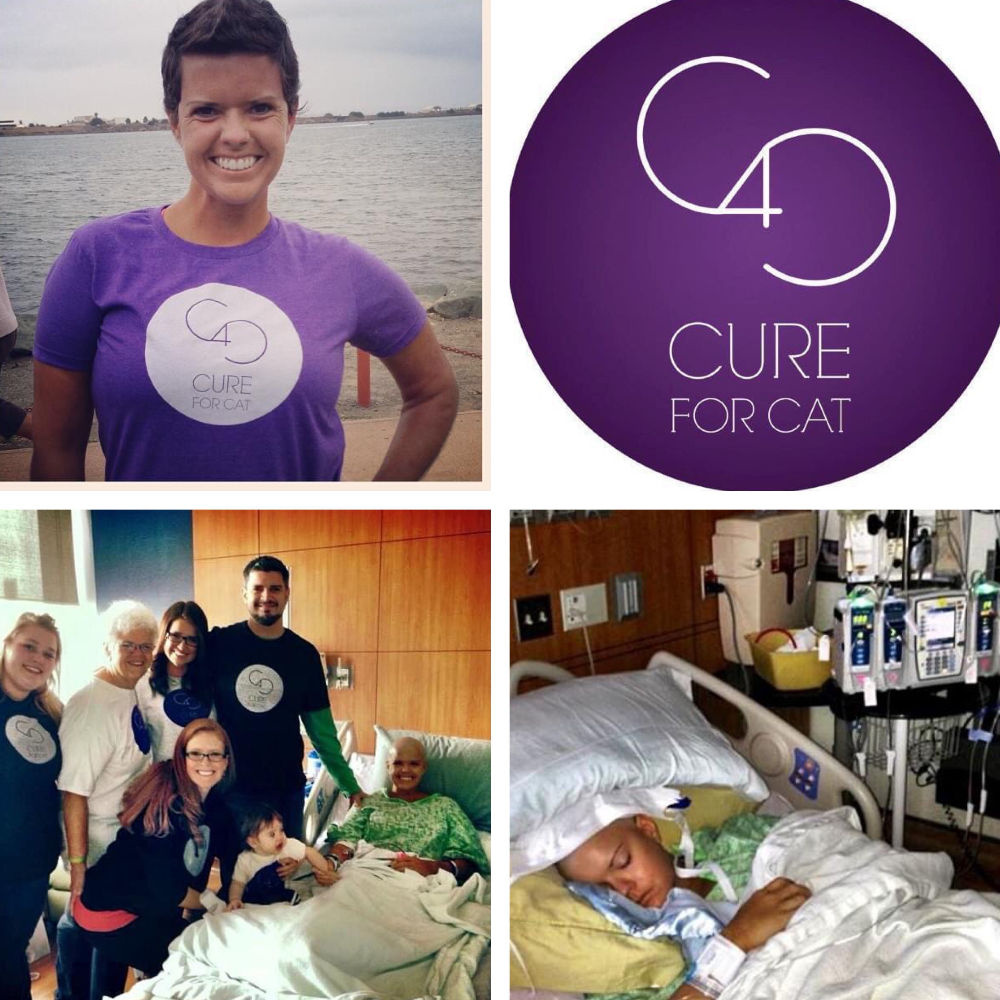
Have you had to make adjustments to your hobbies and interests to accommodate for scleroderma?
Before Scleroderma, all of my hobbies and interests included activities that were all about athletics. I loved playing volleyball, and I went skiing in the winters and wakeboarding in the summers. I was extremely athletic, and so are most of my group of close friends.
Now, my hobbies have completely changed, all due to the fact that physically I cannot do most things that I used to do. My body has changed so much from scleroderma, and I am not physically capable of being as athletic as I was before my diagnosis.
I definitely went through a rough, almost mourning, process when I could no longer do certain things, but I am a very black and white type person. It is what it is, and this is how it is going to be, so I had to figure out how I can move forward and be grateful for this life and the things I can still do. I try not to take my life for granted. It’s very important to me to spend time with my loved ones in any way I can, even if it isn’t sports.
I definitely went through a few years of feeling like I am lacking and being upset that I can’t do what I used to but, over the years, I have come to realize that each year my limitations change, and I need to find new things that bring me joy. I enjoy finding new things to fill my cup!

When were you diagnosed?
I was 22 years old when I was officially diagnosed. At the time, I was living in Arizona. My disease presented itself with finger ulcers and extreme tightness in my face and chest area. I noticed it pretty much right away and would ask my friends if they noticed changes. All of my friends would say “NO!” but I knew something was off.
Initially, I started with the finger ulcers and tightness in my skin on my chest around October. Luckily, I was diagnosed around eight months later in May by a rheumatologist. When I started to get the finger ulcers, I immediately researched on the internet about them, and scleroderma came up as a cause for finger ulcers. I remember thinking “God, I do not want to have this disease,” and I prayed for the people who did have it.
So, when I was told I had it, I was really quite shocked, but I knew all about it and exactly what it was. Of course, I was told the common phrase: “you have two to five years to live, but don’t worry, you won’t have any wrinkles.”
That year was different because, besides the flu, I had never really experienced any kind of illness before. The moment I was diagnosed, I hit the ground running. I took my diagnosis very seriously. I never really had a time of denial or anger. I just said to myself “okay, let’s do this,” and I started to research scleroderma and figure out the best course of action for myself.
I had seen pictures of scleroderma patients and read a lot, and I decided I did not want to live my life slowly declining. I desperately needed and wanted to be around for my family and friends, so I was very aggressive from day one. For the last ten years, I have fought very hard to treat my illness. I went out of the country and tried a ton of different things to treat my scleroderma.
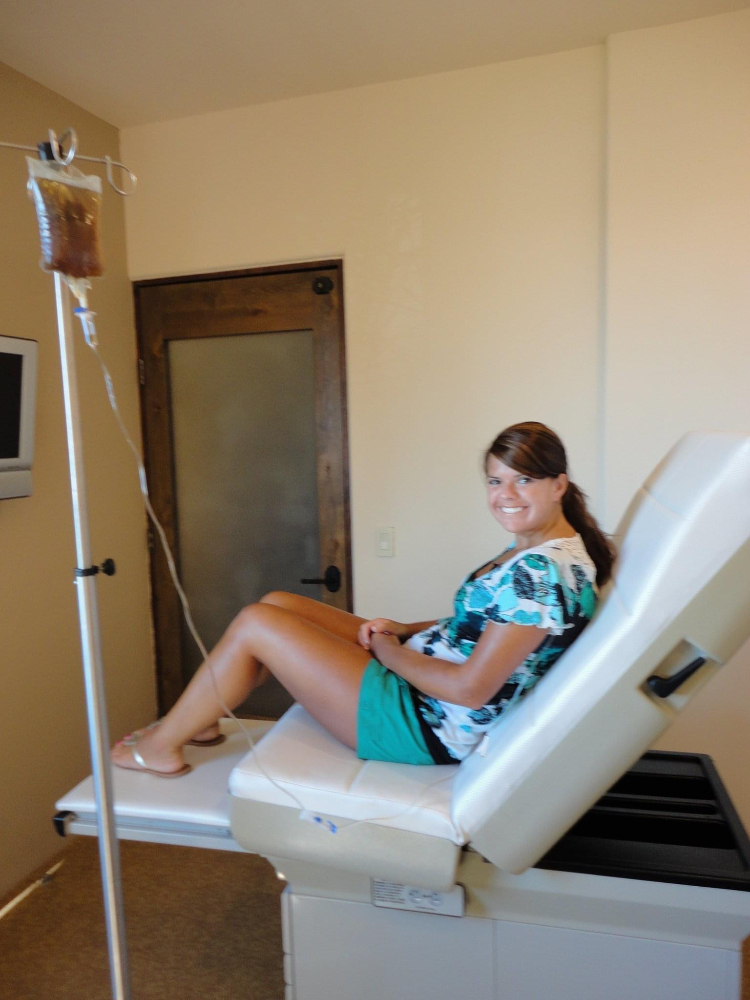
Would you say, looking back now, that your disease was hard to treat or that it progressed quickly?
My disease has been very aggressive from day and has progressed pretty quickly. That is why I eventually needed two separate stem cell transplants: one in 2013 and another one in 2017. I describe it like a volcano that could erupt at any time, and that has happened quite a lot.
Scleroderma tends to have a mind of its own. In general, autoimmune disease does not discriminate. They do not care who you are, your age, your sex, race or religion. They will get you no matter who you are.
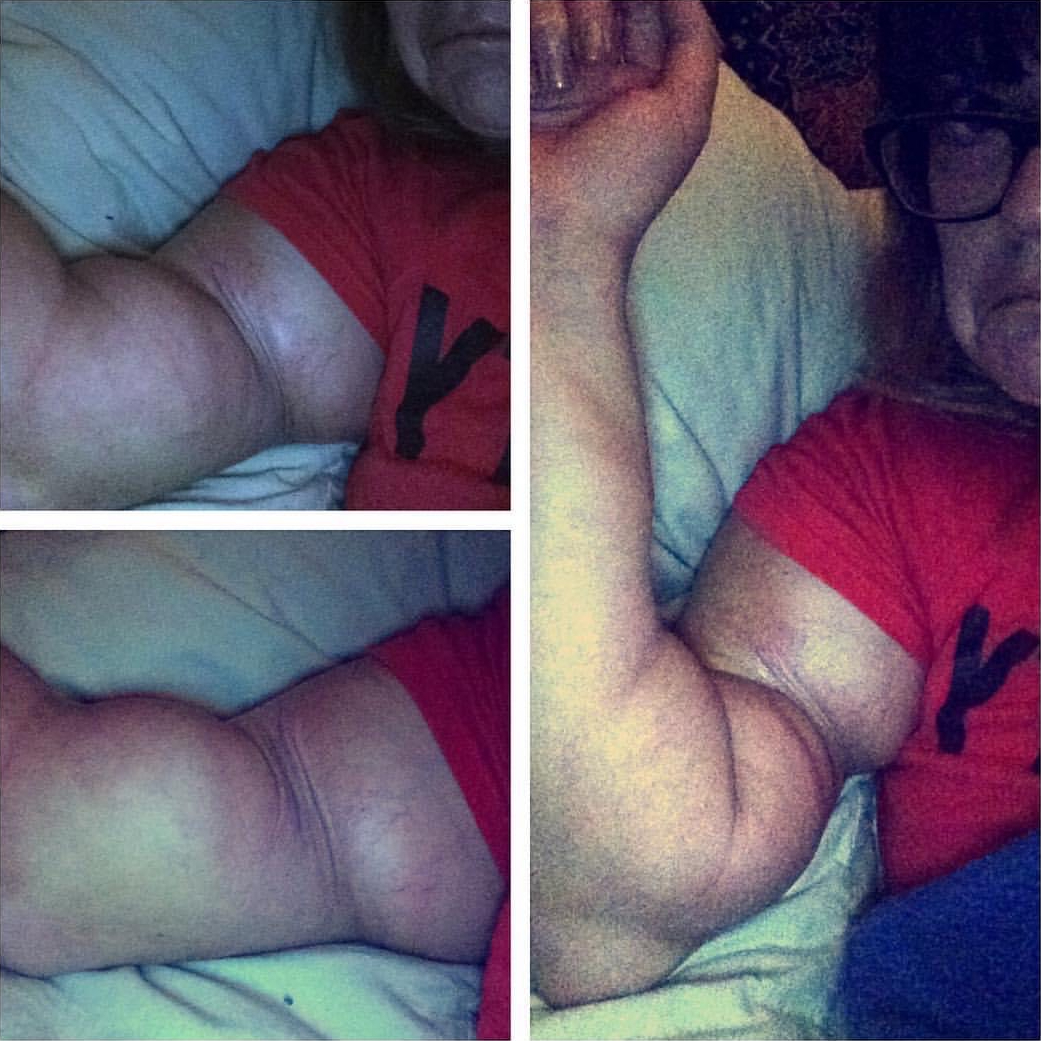
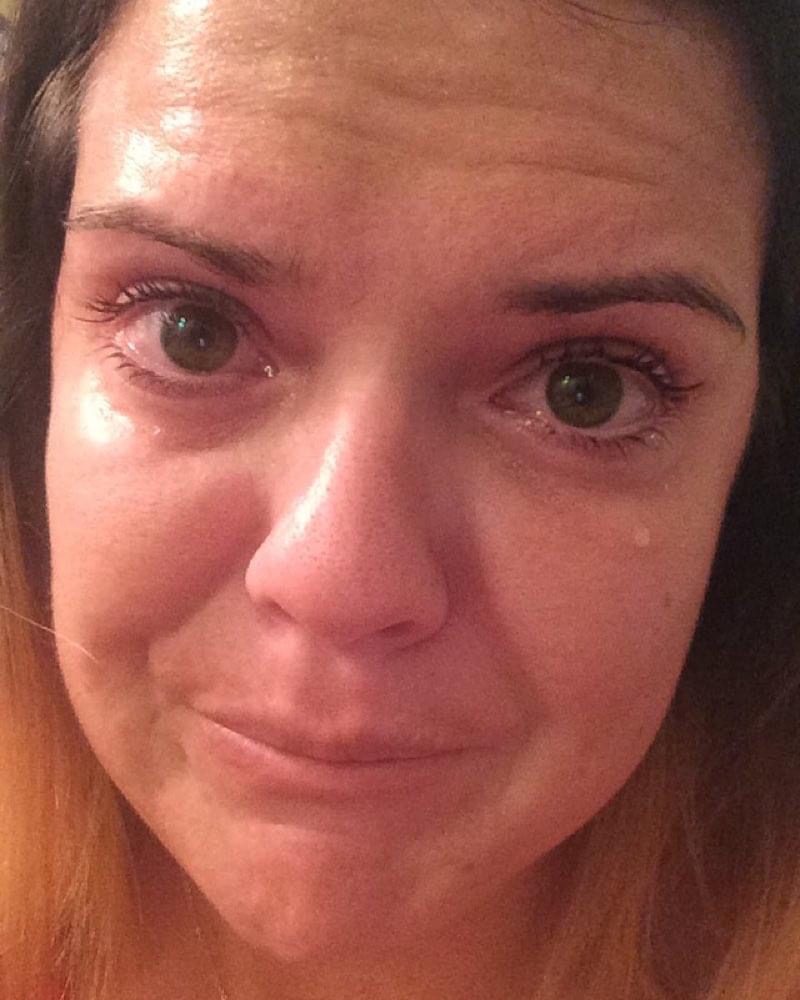
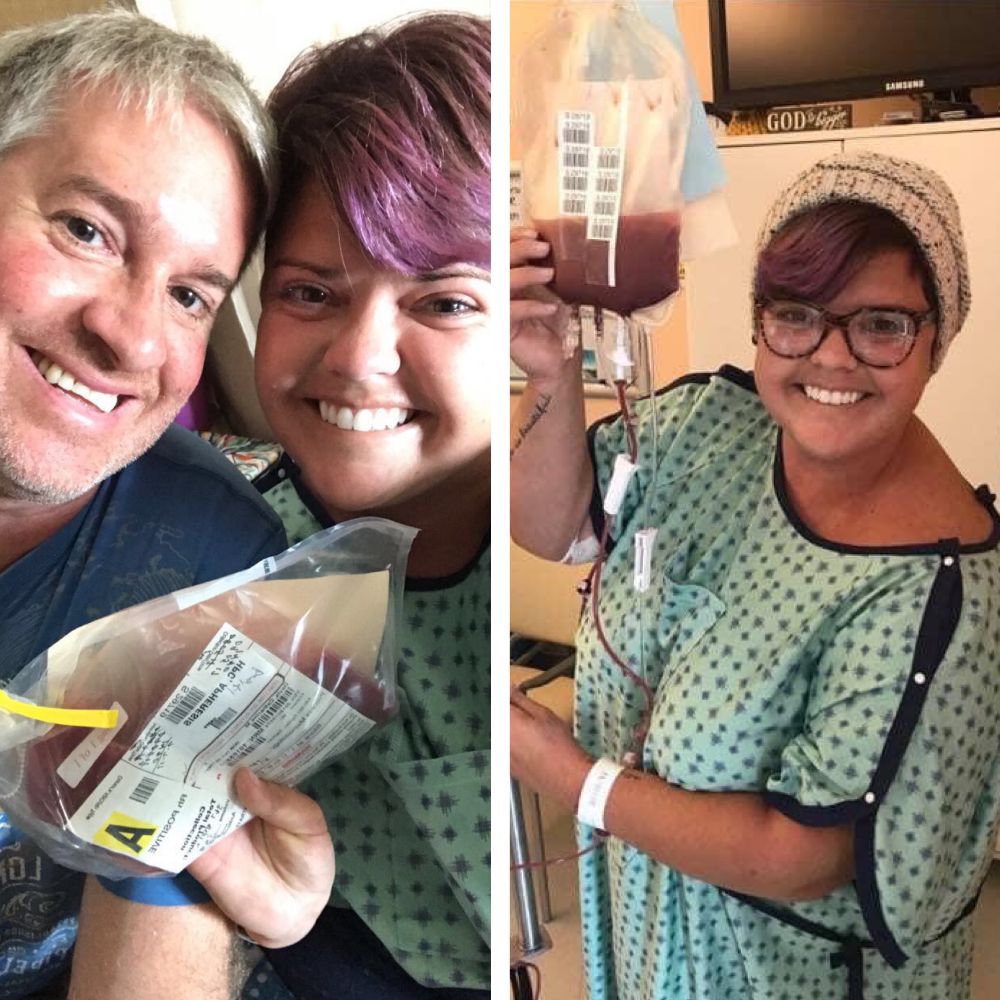
When did you first meet another scleroderma patient?
I met my very first friend that also had scleroderma shortly after my diagnosis. I asked him “if he could do one thing differently after being diagnosed, what would it be?” He flat out told me that he would have quit working immediately. So, that is what I did. I quit my job and fully concentrated on my health.
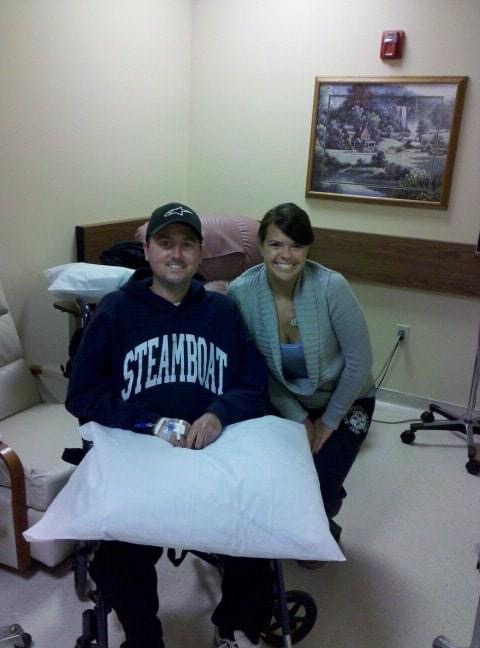
Which symptom is the hardest for you to deal with?
The hardest symptom for me changes all the time. At first, it was my finger ulcers. After I had my first stem cell transplantation in 2013, I never had another issue with finger ulcers. From that point on, it was and still is my gastro system. At this point, my G.I. system is 100% paralyzed and completely useless. I throw up pretty much every single day and am not a candidate for any corrective surgeries.
This year, I was officially diagnosed as a terminal patient and have stopped treatment for my G.I. issues because I do not wish to live out the rest of my life in pain, hospital bound, or miserable. My doctors, my family, and I spoke at length about what I could expect as far as my quality of life goes and the options I had treatment-wise. We decided as a family that I was going to decline treatment for my stomach and GI issues. I still take almost 30 pills a day for my scleroderma, but my G.I. system is too far gone.
God put me here for a reason, and I wanted to enjoy all of my moments for as long as I could. It was a very difficult decision, but after I made it, I felt a weight lifted and finally felt free of that burden.
What is the scariest or hardest part of living with scleroderma?
For me, now that I am terminal, it’s more of just living in the unknown. I feel very led to see people that I love and be proactive in facilitating that and making those memories while I have time left.
I want to leave a legacy. I want my family to be proud of what I have done with this disease and the hard parts I have been dealt. That is why I share. I share my story, my faith, my difficult moments – I share it all. At the end of the day, this journey isn’t about me. It’s God’s plan.
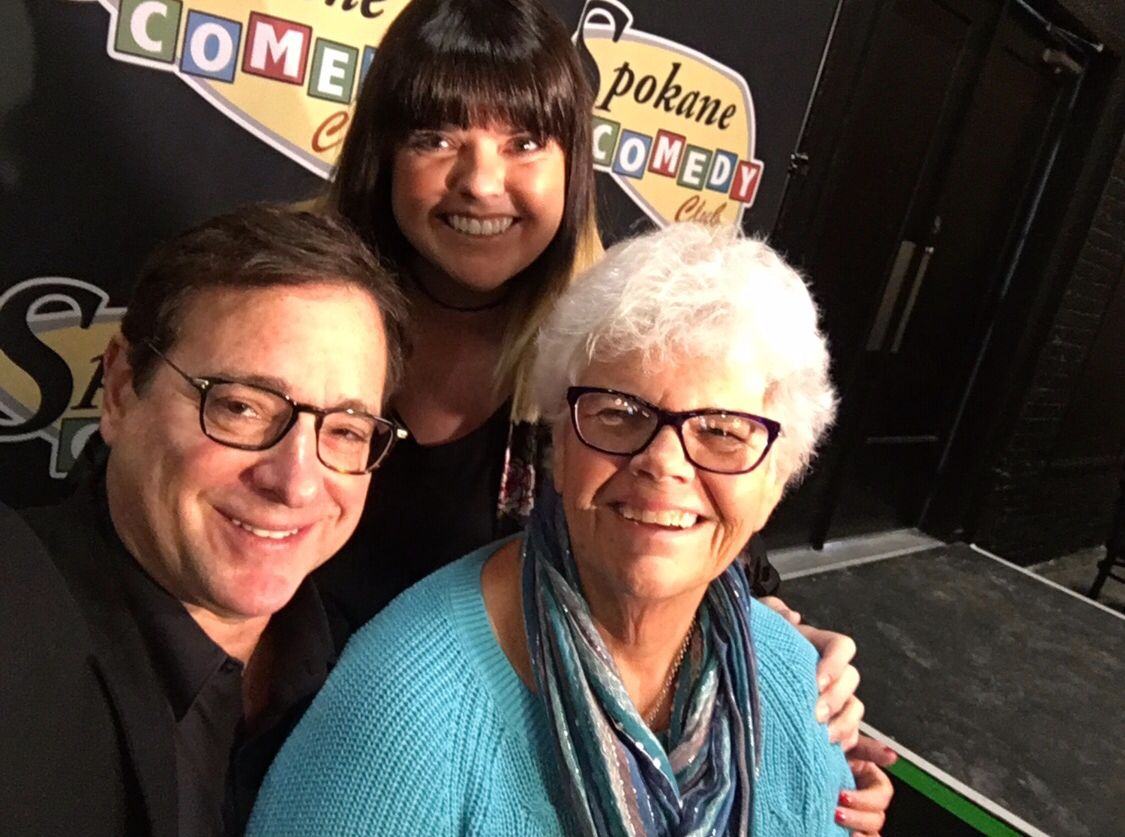
How has scleroderma affected your family, social, and dating life?
I have had to make adjustments on so many things in my life since living with scleroderma.
My sickness has torn my family apart. There is a part of my family that no longer speaks to me because of my scleroderma, and that is devastating. I have lost a ton of friends from this disease, but I have also had to let go of friendships that were not serving me well emotionally. It’s a hard thing to go through, but in the end, that stress and burden goes away.
My life and time are limited. I can’t have family and friendships that do a disservice to my overall mental and physical health in my life. It may sound harsh, but when you’re living with an illness like scleroderma, sometimes you need to be selfish for your health. Ultimately, that is what needed to happen.
Sometimes, when you’re sick, people who are not really do not understand how to cope, and that can turn toxic. Sickness does not just ruin the person who has it. It ruins everyone and everything around them and plays a huge role on the future of your friendships and family.
I am single to this day, and I feel it’s 100% because of how authentic and raw I am about living with this disease on social media. But that’s ok. If you can’t handle me at my most truthful, what’s the point?
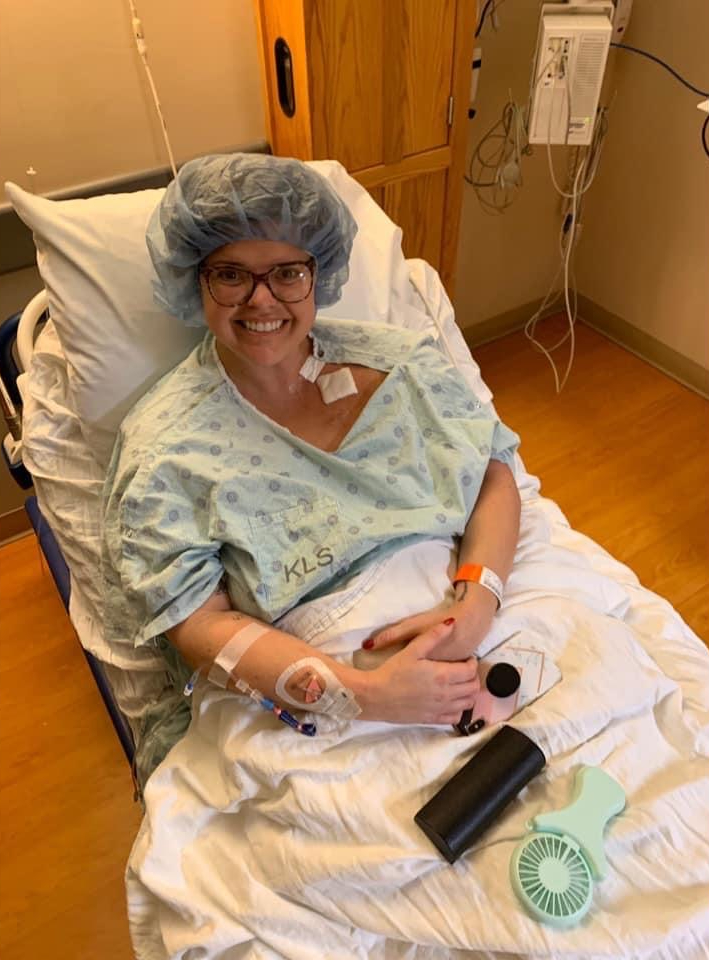
How has scleroderma changed your life?
I have had to make adjustments on so many things in my life since living with scleroderma. Ultimately, your life is not your own anymore and can get very difficult if you let it.
I am a pretty open person, and I am very good at communicating. I will say if I am feeling left out or like my thoughts or opinions don’t matter. There are so many things I cannot do, but I always make sure to make the memories I can have on my own terms. It’s not other people’s fault that I am sick or that they are not. It is all about your attitude.
I am not who I was before I had scleroderma, but also it is extraordinary.
Because I have been dealt these cards, I see the beauty of the world differently. I cherish each moment and enjoy people, places, and feelings so much more than I think I would have if I didn’t get sick. I hate the illness, but it has been such a blessing in so many ways. I have met some very amazing friends who too have scleroderma, and they have changed my life for the better.
I would never say I wish I didn’t get scleroderma. It has really blessed me and my family in so many good ways that they sometimes outweigh the bad. I would not trade my life for anything, even my health.
How would you describe scleroderma in two words?
Unexpectedly beautiful.
What advice do you have for people with scleroderma and other fibrotic diseases?
My biggest advice would be to never ever take the advice of just one doctor. Always be your own advocate and fight for yourself. If you don’t, you will die and you will go downhill extremely fast.
You are the only one that can make those life changing decisions for yourself, so make those phone calls and do what you need to do.
Be sure to follow us on Instagram and Facebook (@sclerounited) to see more scleroderma warriors’ journeys in our weekly Sclero Sunday series.
Are you a scleroderma warrior? We’d love to interview you for Scleroderma Stories! Please visit tinyurl.com/share-my-sclero-story or email us at contact@sclerounited.us
